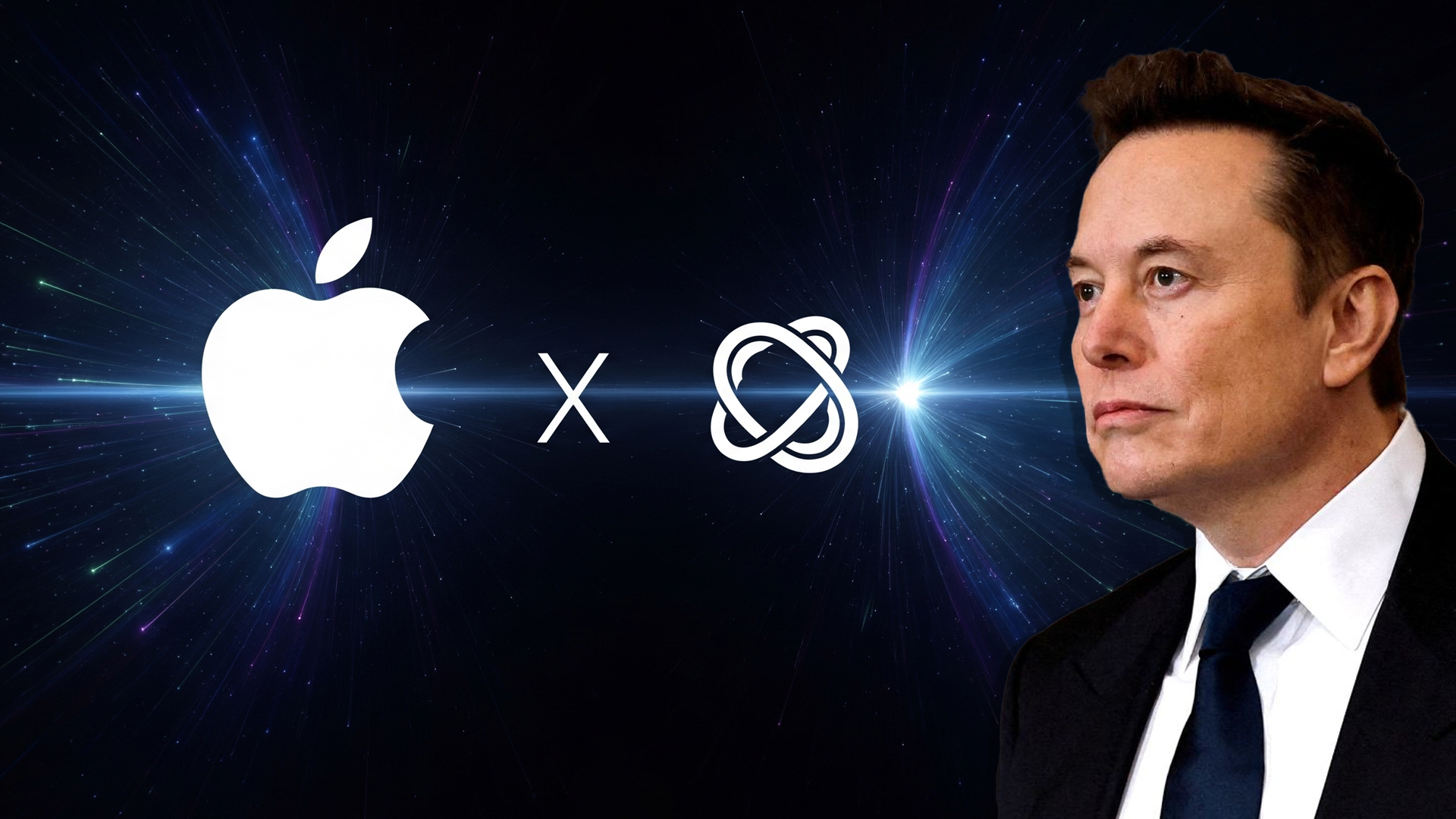Elon Musk’s xAI Sues Apple and OpenAI Over Alleged AI Market Monopoly
Accusations of App Store bias and monopolistic behavior spark high-stakes legal showdown in Texas

Fort Worth, Texas: In a sharp escalation of Silicon Valley’s tech wars, Elon Musk’s AI startup xAI, together with his social media platform X, has filed a sweeping antitrust lawsuit against Apple and OpenAI. The suit accuses the two companies of conspiring to dominate both the generative AI and smartphone markets by engaging in unfair competitive practices.
Filed in a federal court in Fort Worth, Texas, the case alleges that Apple and OpenAI are deliberately working to stifle competition in the AI space—specifically targeting Musk’s Grok chatbot and related services integrated with X.
The lawsuit accuses Apple and OpenAI of conspiring to:
- Monopolize the generative AI chatbot market, using Apple’s ecosystem dominance to promote OpenAI’s ChatGPT over competing platforms;
- Manipulate App Store rankings to disadvantage xAI’s Grok and the X app, blocking them from appearing in “Must-Have Apps” and other featured categories despite strong user metrics;
- Restrict consumer choice by embedding ChatGPT within Apple’s new AI suite, Apple Intelligence, without offering equal integration opportunities to competitors.
xAI is seeking billions of dollars in damages and a court order to halt what it describes as “anticompetitive behavior.”
Musk’s AI Offensive
The lawsuit marks the latest move in Musk’s increasingly aggressive campaign against OpenAI, a company he co-founded in 2015 but has since sued separately for what he claims is a betrayal of its non-profit mission.
xAI, launched in 2023, has positioned Grok as a direct competitor to ChatGPT. Integrated across X and Tesla vehicles, Grok aims to offer a real-time, humor-infused alternative to traditional chatbots. Musk has complained that despite its popularity, Apple is actively obstructing its visibility through App Store design and algorithmic bias.
“Apple is gatekeeping innovation and giving preferential treatment to OpenAI,” Musk said in a post on X earlier this month, calling it “a direct assault on fair competition and consumer freedom.”
Reactions from Apple and OpenAI
After Musk’s threat to sue Apple, OpenAI CEO Sam Altman responded sharply, stating, “This is a remarkable claim considering the allegations I’ve heard about Elon manipulating X to benefit his own interests while disadvantaging competitors and critics.”
An Apple spokesperson maintained that the App Store is designed to be “fair and free of bias,” highlighting that it features “thousands of apps” evaluated through a variety of signals. The company emphasized that its editorial and algorithmic systems prioritize user safety, functionality, and engagement—not the manipulation of rankings to favor corporate partnerships.
In a counterclaim, OpenAI has accused Musk and xAI of engaging in “harassment” through persistent litigation, public attacks on social media and in the press, and a “sham bid” to acquire the ChatGPT-maker for $97.4 billion—an attempt allegedly aimed at damaging the company’s business relationships.
Broader Implications
The case comes at a time when Apple is already facing legal scrutiny in the U.S., Europe, and India over its App Store dominance. The latest complaint could add pressure from regulators examining whether Big Tech platforms are unfairly shaping access to emerging AI tools.
India Today and Hindustan Times have described the lawsuit as a significant moment in the global AI race, pointing out that Grok’s absence from prominent App Store feature sections may reveal broader systemic issues in platform gatekeeping.
Should the lawsuit prevail, it could compel Apple to reassess how it curates AI applications, potentially opening the market to greater competition in the generative AI sector. At the very least, the case guarantees an extended legal confrontation involving three of the most powerful companies in technology.